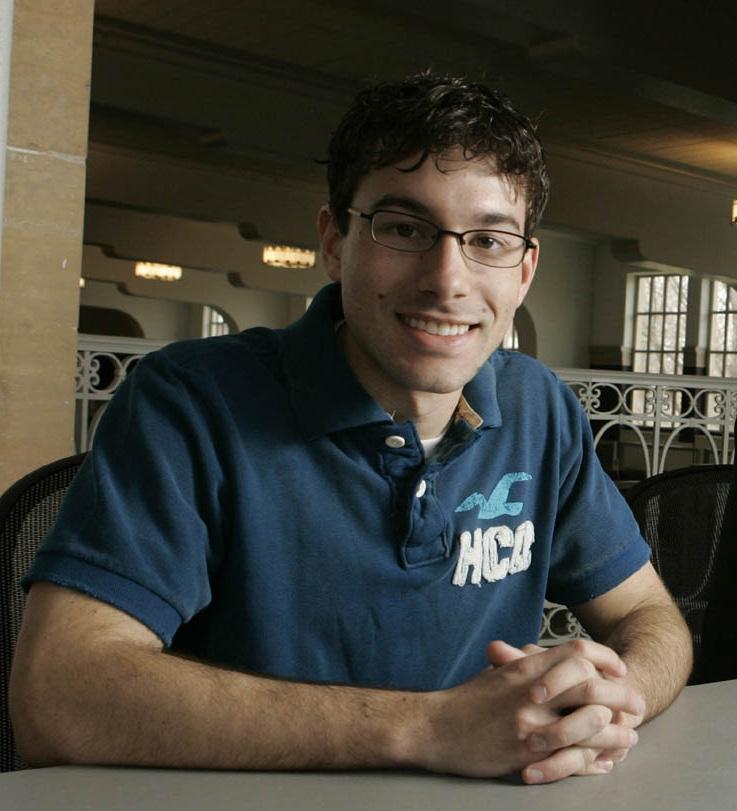
1 minute read
Entrepreneur Evolution
When Laurie Watje joined UNI’s business college in 2007, the John Pappajohn Entrepreneurial Center (JPEC) was still in its infancy.
It was created more than a decade prior to spur entrepreneurship among young people in Iowa thanks to a gift from Des Moines venture capitalist John Pappajohn. Watje, now the JPEC associate director, has heard stories from those early years. Students interested in entrepreneurship were few and far between, but they were persistent. JPEC was initially located in a small office in the marketing department, relocating in 2007 to the Business and Community Services building.
Advertisement
Watje said student entrepreneurship at the time was almost nonexistent in Iowa so it was necessary to advertise that this was a tangible career path.
“We had to educate people that these were people starting their own business,” Watje said. “They were generating revenue, paying taxes and employees. It’s legitimate. It just wasn’t a common viewpoint at the time.”
Ben Frein (Finance and Computer Science ’07) was one of the first successful students to go through the program. When he arrived at UNI’s business college in the mid-2000s, JPEC was in the middle of transitioning to a full-time incubation space in the new Business and Community Services building. Frein, who started an online retail business with his friends in high school, worked out of a temporary office in a mobile trailer near the Industrial Technology Center. Campus security would sometimes question why he was on campus late at night, and they wouldn’t always believe his answers, he said with a laugh.

Ben Frein was one of the first students to complete the entrepreneurship program.
“UNI was becoming more entrepreneurial while we were there, but it still wasn’t considered a full-time career path,” Frein said. “Back then, that just wasn’t a path students took. Today, it’s much more accepted, and I think UNI has done a good job promoting it.”
Frein sold that first business and created a self-storage empire in Iowa while also becoming a venture capitalist. He attributes a lot of his success to the advice and support he received through JPEC.
“JPEC solidified entrepreneurship as a career versus a hobby,” Frein said. “I would’ve really struggled with the structure of creating a business without the entrepreneurship program and the resources they provided.”
Carlos Arguello (Marking Management ’07) went through the program at the same time as Frein. He was always entrepreneurial-minded, but he actually stumbled upon JPEC when toying with the idea of creating a Spanish newspaper in his hometown of Carroll. The staff helped connect him to resources in the publishing business and create a solid business plan.

Carlos Arguello and his business partner/mother, Lorena Lopez with newspaper for Spanish-speaking Iowans that was launched in the Student Business Incubator in 2006.
Photo courtesy of the Carroll Daily Times Herald.
“The leadership immersed me in the program and the resources they had,” Arguello said. “It was enough to help me navigate the waters. It was a very good accelerator in my mindset and hunger for entrepreneurship. The program helped me create that foundation.”
Arguello is now the president of Royal Salons, which manages franchises of hair salons. He also does real estate investing.
Times have certainly changed in the 13 years since Frein and Arguello were associated with JPEC. Entrepreneurship is a more popular career path for young individuals, and UNI just renamed the Marketing Department to Marketing and Entrepreneurship, reflecting its long-term commitment to entrepreneurial values.
Watje has seen JPEC grow from mobile trailers and small offices to the current state-of-theart R.J. McElroy Student Business Incubator, a space that helps students collaborate with each other, JPEC staff and faculty members.
Students are taught differently as well. JPEC used to hold one or two workshops a week, going over the basics of starting a business. Now support flows through one-on-one mentoring and tailored resources based on each unique business model. When she first started, Watje encouraged students to meet clients over phone instead of face-toface, so customers wouldn’t discriminate against the young business owners. Now young entrepreneurs are accepted and even better, celebrated.
This shift would have been hard to imagine two decades ago. But more students want to carve out their own paths around their personal passions. Many employers see the value in entrepreneurial skills as well. Both trends have led to the drastic increase in popularity for the program at UNI.
“At first, we really had to sell the value of entrepreneurship,” Watje said. “Now, students are aware of JPEC and are wanting to be more involved. We have so much more interest. There’s a demand now, and that wasn’t the case even 13 years ago.”









